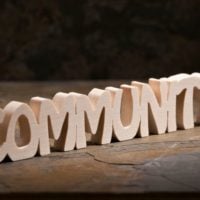Deadline: 15-Jul-22
The Open Society Foundations (OSF) is pleased to announce the third Puerto Rico Youth Fellowship.
Puerto Rico is witnessing a historic moment, as young people continue to call out their government’s abandonment of the country’s most vulnerable communities. Puerto Rico continues to struggle with the complexities of colonialism and the socioeconomic consequences of a U.S. imposed Fiscal Oversight Board.
Young people continue to be on the frontlines working to protect essential services—including the University of Puerto Rico—as part of the fiscal plans that will define Puerto Rico’s future.
Project Focus
- The Puerto Rico Youth Fellowship will support the next generation of activists between the ages of 21 and 35, who want to implement a project of their own design that advances Decolonization and Climate Justice in Puerto Rico. Said projects could include the following topics: criminal justice, workers’ rights, LGBTTIQ rights, mutual aid, food justice, renewable energy, land protection, education (including the right to public education), health, housing, or immigration, among other subject areas.
- They motivate applicants who are directly affected by the problems, norms, practices, and systems their projects attempt to address. They also motivate people who form part of groups traditionally marginalized and/or discriminated in Puerto Rico, including, but not limited to: LGBTTIQ people; Afro-Puerto Rican people; people with diverse abilities; people who have been in prison; people who have been/are sex workers; low income community members (including people living in public housing); people who are not receiving formal education; or people with family members or loved ones that have direct experience.
Benefits
- The duration of the fellowship is 18 continuous months starting in January 2023 (January 2023–June 2024).
- Recipients of the fellowship will receive $45,000, structured to cover project related costs as well as a living stipend.
Eligibility Criteria
- Education: There no minimum education requirements.
- Time commitment: Selected fellows are required to participate during the course of 18 continuous months (approx. October 2022–April 2024), working approximately 35 hours/week. Full-time studies or employment are not permitted.
- Potential and attitude: Selected fellows must have the potential to accomplish their project objectives and to benefit from the opportunity and exposure that the fellowships offer. They wish to provide this opportunity to those who have not had easy access to existing leadership pipelines or other paths to achievement and accomplishment, but who nonetheless have the drive, aptitude, savvy, and tenacity to seize upon an opportunity for growth and development when it presents itself.
- Host Organizations: Applicants can choose (if they so desire) a host organization. Host organizations—which can be advocacy or community groups, scholarly or research institutions, government agencies, or other nonprofit organizations or associations – can provide access to resources such as space, technology, and networks, as well as mentoring and guidance. The fellowship program encourages host organizations to provide in-kind contributions such as office space and necessary overhead. Host organizations may also augment the stipend award and provide other benefits. The fellowship program does not provide the host organization with supplemental funds. Fellows working with a host organization must submit a letter of commitment from the host organization that details the parameters of the working relationship before beginning any project under this fellowship.
- Projects proposed in conjunction with host organizations are evaluated in part on the extent to which the host organization is the right fit for the project and the applicant. However, if awarded a fellowship, the individual applicant ultimately is responsible for the work; and the fellowship “attaches” to the individual, not the host organization. The individual has the right, with the prior approval of the fellowship program, to take the fellowship to another host or choose to do the work without a host organization.
- Community Recommendation: Fellows must provide, along with their letter of intent, a letter by a community leader from the community they wish to serve, endorsing their project. This means that if for example a fellow wishes to serve a specific geographic community, they must know the community members and ensure they have the trust and backing of the community to develop their project. Note they are not looking for a professor or academic to endorse the project, but a community member with lived experiences that can endorse the project you are wishing to execute in said community.
For more information, visit https://www.opensocietyfoundations.org/grants/puerto-rico-youth-fellowship









































